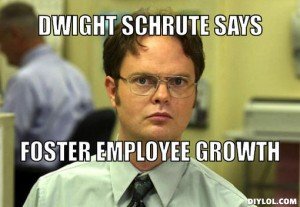 Pretty much everyone knows that traditional performance management is broken. Rating and ranking employees against one another hasn’t been considered “best practice” by HR or employees for some time. And for good reason.
Pretty much everyone knows that traditional performance management is broken. Rating and ranking employees against one another hasn’t been considered “best practice” by HR or employees for some time. And for good reason.
Back in the day, “workers” were measured strictly by output. Today, according to this recent report from Deloitte, more than 70% of all employees work in service or knowledge-related jobs where their performance is driven by “skills, attitude, customer empathy — and by their ability to innovate and drive change by working through teams.”
It’s not as easy to rank intangibles in a typical performance management structure and today’s executives are seeing the forest and the trees now — 70% of HR professionals and executives stated they are either currently in process or have recently updated their performance management technology systems.
Deloitte notes that “rank and yank” systems of the past were demoralizing employees, creating creating animosity, and motivating good employees to leave their organizations prematurely. That’s a pretty high price to pay for bad performance management.
So what’s the solution for today’s HR pros? Not all employees are created equal and keeping your finger on the pulse of performance is obviously important. But traditional performance management notoriously over-rewards the top small percentage of performers while leaving mid-level or near-top-level performers out in the cold — unmotivated and unrewarded.
The recent report from Deloitte also noted recent neuroscience research that showed conversations about compensation provoke a measurable, primal “fight or flight” reaction in employees.
What are managers to do? In the changing world of performance management, managers will be increasingly expected to be involved coaches, responsible for giving effective feedback that actually leads to improved performance and motivation in employees, and decoupling performance and compensation (removing the power of performance management scare tactics of the past and changing the conversation to one of constant improvement and development).
What do you think? What’s wrong with performance management? Are today’s HR pros ready to handle the changing expectations of management and leadership?


